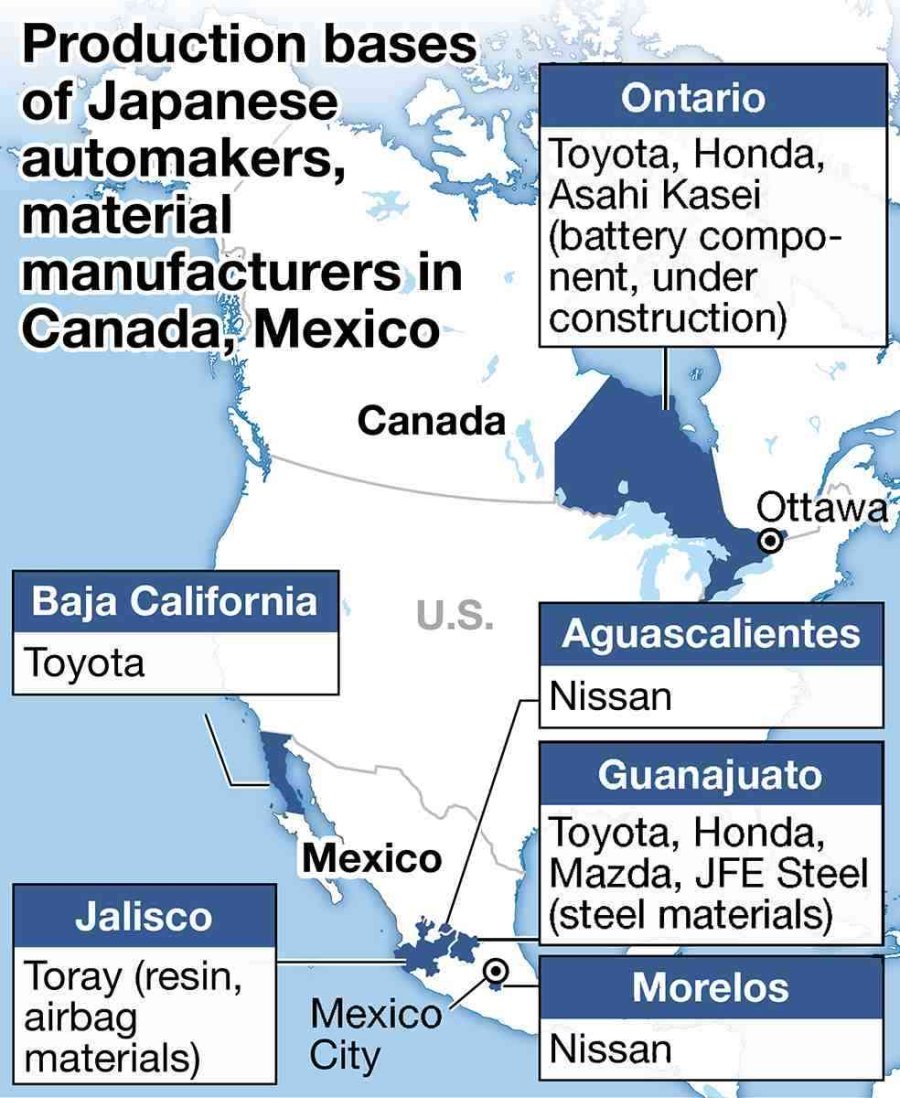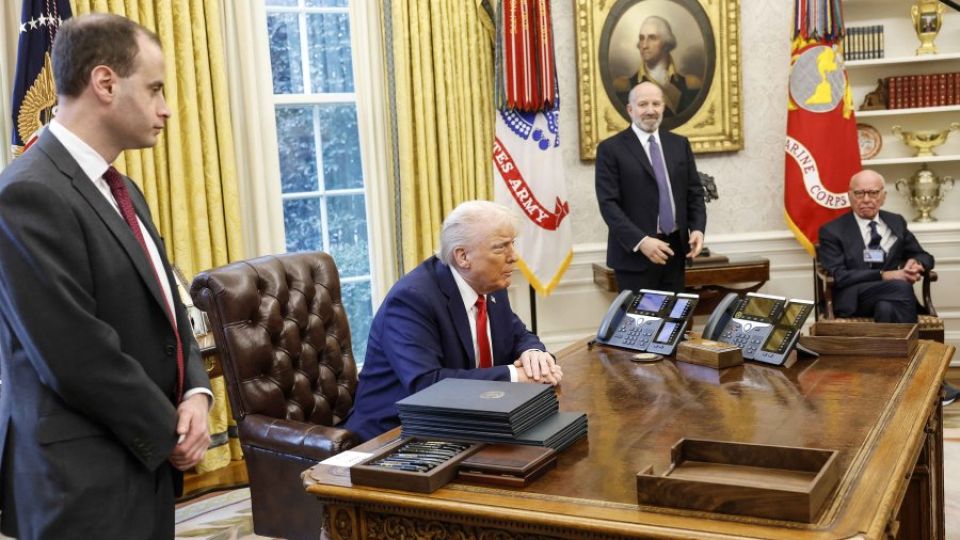February 4, 2025
TOKYO – There are concerns that the imposition of tariffs by U.S. President Donald Trump on imports from Canada and Mexico will impact Japanese automakers and other manufacturers that have production bases in those countries.
Mexico hosts production bases of Toyota Motor Corp., Honda Motor Co., Nissan Motor Co. and Mazda Motor Corp., with vehicles produced there exported to the United States. In addition, companies that supply auto parts and materials also have production bases in Mexico, with Toray Industries, Inc. having a production base for airbag fabric and JFE Steel Corp. having a processing plant for high-grade steel materials for vehicles.

GRAPHICS: THE YOMIURI SHIMBUN
According to the Japan External Trade Organization (JETRO), in 2023 Nissan produced about 620,000 vehicles in Mexico, exporting around 40% of them to the United States, while Toyota produced about 250,000 vehicles and exported 90% of them to the United States. Honda produced about 170,000 vehicles in Mexico, exporting around 80% to the United States.
When Trump announced he was considering imposing tariffs on imports from Mexico last autumn, executives of leading automakers voiced their concerns. “The impact would be huge. If the tariffs are permanent, we will have to consider producing vehicles in countries that are not subject to the tariffs in the medium- to long-term perspective,” said Honda Executive Vice President Shinji Aoyama.
Toyota and Honda also have production bases in Canada, and some of the vehicles produced there are exported to the United States.
Prof. Kenichi Kawasaki of the National Graduate Institute for Policy Studies estimates that the 25% tariff on imports from Mexico and Canada would reduce Mexico’s annual auto exports to the United States by $65.5 billion (about ¥10 trillion) and Canada’s by $43.3 billion.
There is a possibility that Japanese companies will move production to the United States to avoid the tariffs, but executives from leading auto manufacturers have expressed uncertainty. “During the first Trump administration, we needed to think about the possibility of two terms or up to eight years,” one executive said. “But this time it will be four years, and we may not have to decide right away, but instead need to consider multiple scenarios.”
In response to the U.S. decision, the Japanese government is taking measures, as well. The Economy, Trade and Industry Ministry on Sunday set up a consultation service in cooperation with JETRO to take inquiries from companies. It will work with JETRO’s offices in the United States, Canada, Mexico and China, as well as its 49 offices in Japan, to gather information and provide support to companies.


